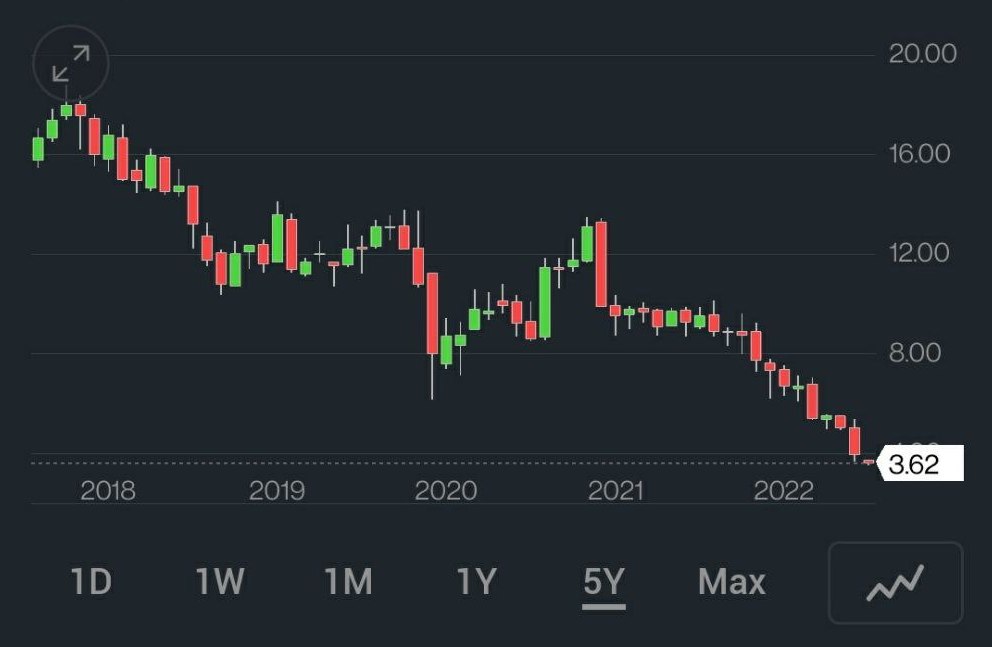Jue, Feb 9th 2023

Credit Suisse has suffered blow after blow — from an employee spying scandal to failed investments.
Credit Suisse lost 7.3 billion Swiss francs in 2022 – about 300 million CHF more than what financial analysts expected, according to data the bank released this week. Despite Switzerland’s second largest bank warning that a radical restructuring plan would cause losses in both its wealth division and the investment banking sector, it posted a surprising net loss of 1.39 billion CHF in the last quarter alone.
“The franchise is deteriorating so far faster than expected and seems to be ongoing.” said JPMorgan analyst Kian Abouhossein told the Financial Times.

On Zurich’s Paradeplatz, the floundering Credit Suisse’s headquarters are neighbors with the prospering UBS’s headquarters.
Credit Suisse ha estado plagado de años de escándalosy pérdidas récord. El banco pasó de un beneficio de 2.700 millones de CHF en 2020 a una pérdida de 1.650 millones de CHF en 2021, debido sobre todo a las malas inversiones en el fallido grupo de cadenas de suministro Greensill y el grupo de fondos de cobertura Archegos. En el colapso del fondo de cobertura en 2021, las autoridades estadounidenses han acusado al fundador de Archegos, Bill Hwang, y a tres colegas de cargos de crimen organizado y fraude.
En octubre de 2021, las autoridades estadounidenses y británicas dictaron sentencia por la que Credit Suisse debía pagar 439 millones de francos suizos para resolver un escándalo de corrupción en Mozambique que incluía cargos por soborno y fraude. Esa misma semana, la Autoridad Suiza de Supervisión de los Mercados Financieros anunció que había descubierto "graves deficiencias de organización" en su investigación sobre un caso de espionaje empresarial que comenzó con una auditoría del banco en 2020. Según la investigación, Credit Suisse espió a sus socios de su consejo de administración y antiguos empleados. En 2022, los malos titulares se convirtieron en sinónimo del banco y #DebitSuisse era trending en Twitter.
In October of 2022, Credit Suisse Chairman Axel Lehmann made an attempt to shore up confidence by announcing a radical restructuring plan, but rumors of its true financial health scared off many of their wealth management clients. UBS was the main recipient of customers pulling their cash out of Credit Suisse accounts. UBS saw a 23% increase in pre-tax profits for its last quarter of 2023, thanks to an influx of Credit Suisse clients.

Most of the outflow of cash from Credit Suisse seems to have ended up at competitor UBS.
The bank was able to raise about 4 billion CHF in capital thanks to Saudi National Bank taking a roughly 10% stake in the floundering institution. In addition, Credit Suisse let go of as many as 9,000 employees (2,000 of which were based in Switzerland). Credit Suisse says its restructuring plans will cost another 1.6 billion CHF in 2023.
The bank is “seeing money now coming back in different parts of the firm,” Chief Executive Ulrich Koerner said recently. But financial analysts, such as Thomas Hallett at Keefe, Bruyette & Woods, says it may not be enough after the “huge” losses.
“At best, some return but at what cost? We expect this to be viewed negatively,” Hallett told FT.

A look at Credit Suisse’s last five years in stock prices. Can it change the trend?
“We have a clear plan to create a new Credit Suisse and intend to continue to deliver on our three-year strategic transformation by reshaping our portfolio, reallocating capital, right-sizing our cost base, and building on our leading franchises,” Chief Executive Ulrich Koerner said in a statement Thursday.
As part of its restructuring, the bank has transformed its investment banking arm with the $175 million purchase of Michael Klein’s advisory firm M. Klein & Co. Those operations will house investment banking functions under its new Credit Suisse First Boston (CSFB) brand. The purchase is considered controversial by some, as Klein was a member of the Credit Suisse Board of Directors until very recently.
“With heavy losses to continue in 2023, we expect to see another wave of downgrades and see no reason to own the shares,” Keefe, Bruyette and Woods analysts wrote in a note Thursday. If Credit Suisse can find its footing and regain the confidence of its investors remains to be seen in 2023.
Este artículo puede compartirse y reimprimirse libremente, siempre que se incluya un enlace al artículo original.
